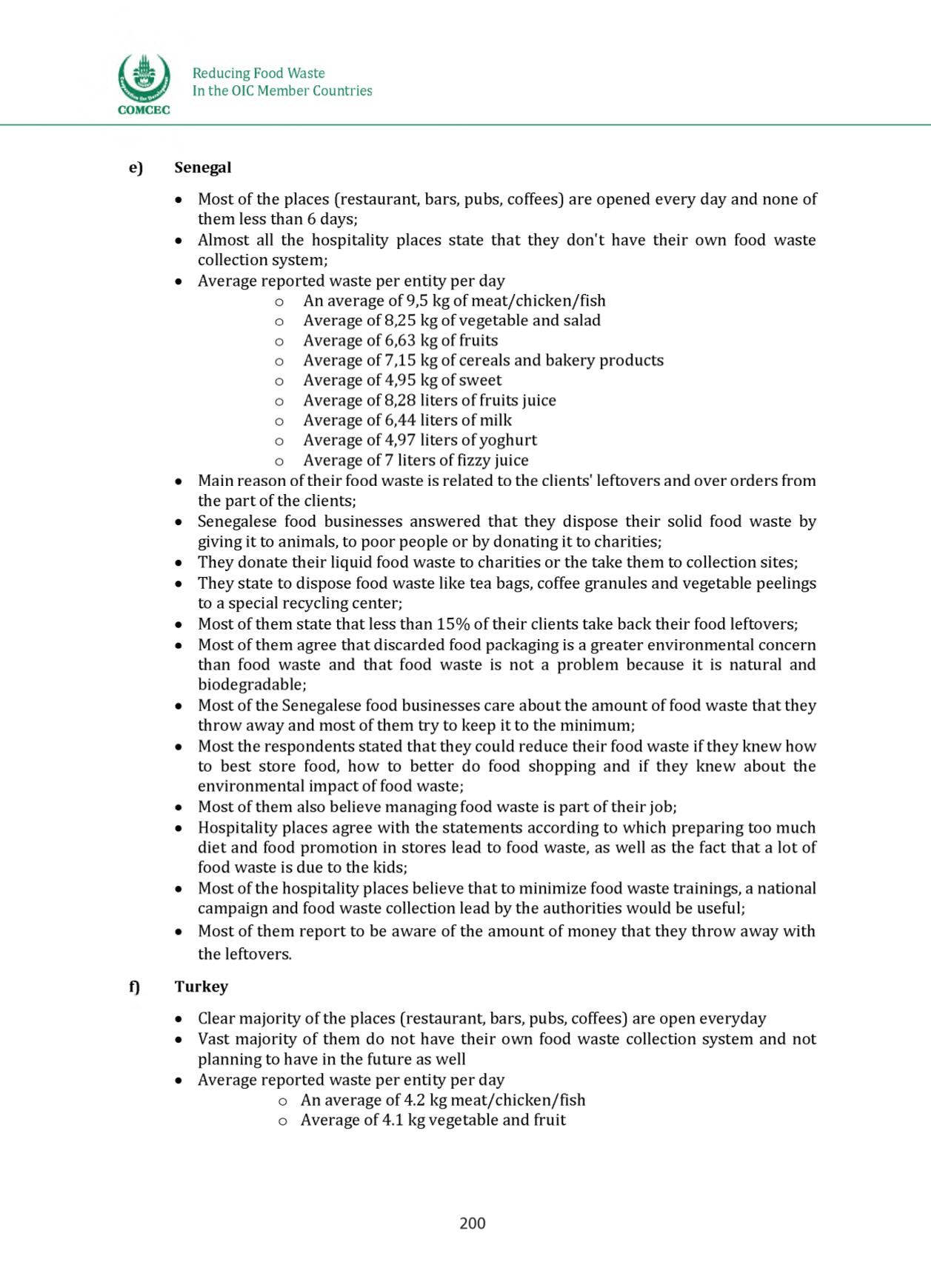

Reducing Food Waste
In the OIC Member Countries
COMCEC
e)
Senegal
• Most of the places (restaurant, bars, pubs, coffees) are opened every day and none of
them less than 6 days;
• A lmost all the hospitality places state th a t they don 't have their own food waste
collection system;
• Average reported waste per entity per day
o An average of 9,5 kg of m eat/ch icken/fish
o Average of 8,25 kg of vegetable and salad
o Average of 6,63 kg of fruits
o Average of 7,15 kg of cereals and bakery products
o Average of 4,95 kg of sweet
o Average of 8,28 liters o f fruits juice
o Average of 6,44 liters o f m ilk
o Average of 4,97 liters o f yoghurt
o Average of 7 liters of fizzy juice
• Main reason of their food waste is related to the clients' leftovers and over orders from
the pa rt of the clients;
• Senegalese food businesses answered tha t they dispose their solid food waste by
giving it to animals, to poor people or by donating it to charities;
• They donate their liqu id food waste to charities or the take them to collection sites;
• They state to dispose food waste like tea bags, coffee granules and vegetable peelings
to a special recycling center;
• Most of them state tha t less than 15% o f their clients take back their food leftovers;
• Most of them agree tha t discarded food packaging is a greater environmental concern
than food waste and tha t food waste is n o t a p rob lem because it is natural and
biodegradable;
• Most of the Senegalese food businesses care abou t the am oun t of food waste tha t they
th row away and most of them try to keep it to the m in im um ;
• Most the respondents stated th a t they could reduce their food waste if they knew how
to best store food, h ow to better do food shopping and if they knew abou t the
environmental im pac t of food waste;
• Most of them also believe m anag ing food waste is pa rt of their job;
• Hospitality places agree w ith the statements according to which preparing too much
die t and food prom o tion in stores lead to food waste, as well as the fact tha t a lo t of
food waste is due to the kids;
• Most of the hospitality places believe th a t to m in im ize food waste trainings, a national
campaign and food waste collection lead by the authorities w ou ld be useful;
• Most of them repo rt to be aware of the am o u n t o f money th a t they th row away w ith
the leftovers.
f)
Turkey
• Clear m ajority o f the places (restaurant, bars, pubs, coffees) are open everyday
• Vast m ajority o f them do n o t have their ow n food waste collection system and no t
p lan n ing to have in the future as well
• Average reported waste per entity per day
o An average of 4.2 kg m eat/ch icken/fish
o Average of 4.1 kg vegetable and fru it
200
















